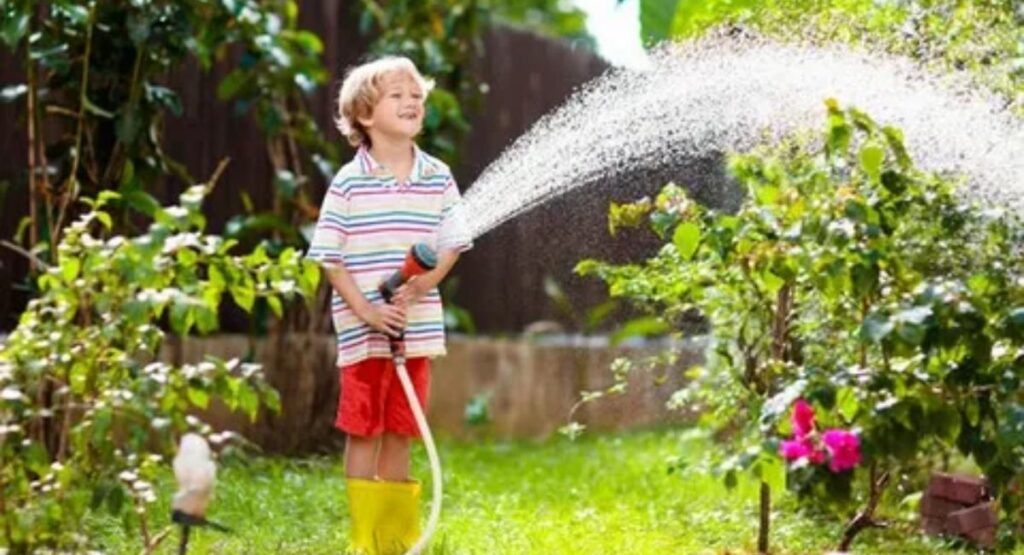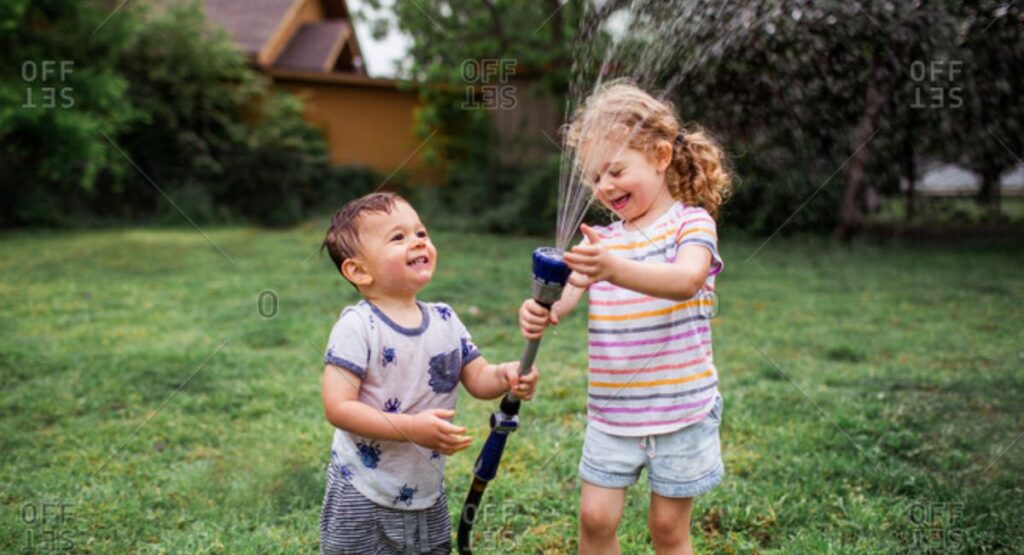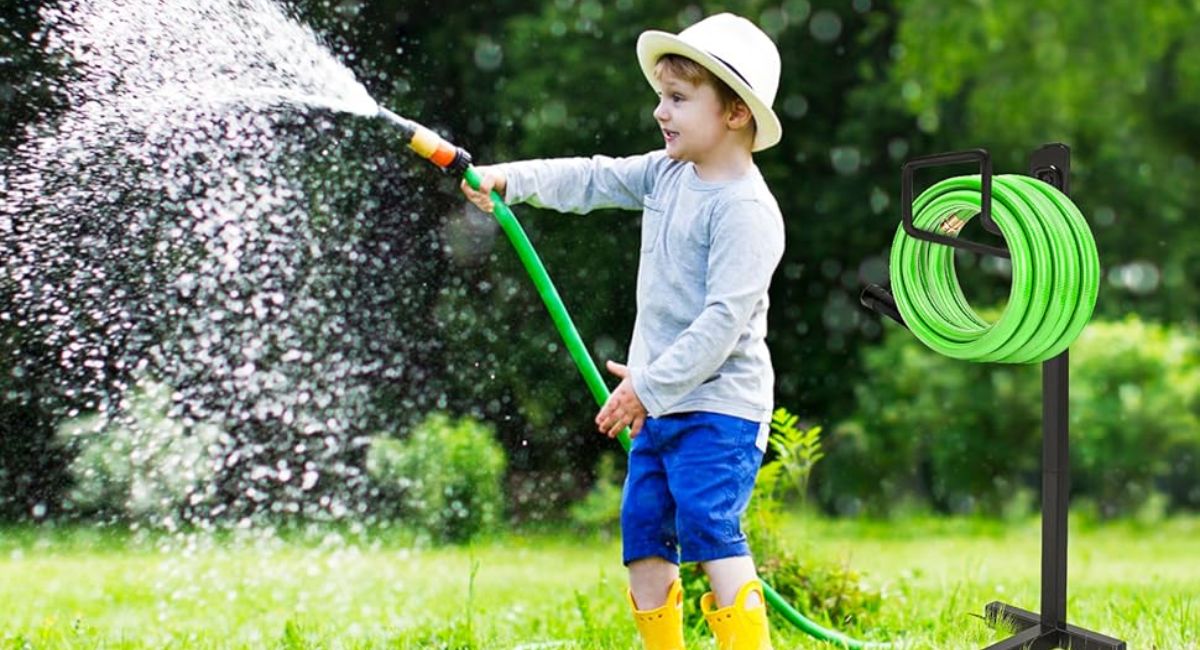Choosing a name for your baby is more than just picking something that sounds beautiful — it’s a way to express values, emotions, and hopes for their future. In Japanese culture, water is more than a natural element; it’s a profound symbol of life, purity, calmness, and strength. Because of this, names inspired by rivers, oceans, rain, and lakes have deep spiritual and cultural meanings, making them timeless choices for both boys and girls.
Whether you’re drawn to the gentle flow of a stream, the power of the ocean, or the refreshing purity of rain, Japanese water-inspired names carry beautiful meanings rooted in nature and tradition. In this guide, we’ve gathered Japanese names that mean “water” — including options for girls, boys, unisex names, and even surnames — to help you find the perfect name with a peaceful and powerful essence.
Symbolism and Meaning of Water in Japanese Names
In Japanese language and culture, water — or “mizu” (水) — is more than a physical element. It’s one of the five classical elements (earth, fire, wind, water, void) and represents the qualities of adaptability, purity, and transformation. Water flows, nourishes, and shapes everything around it, making it a powerful metaphor for life itself.
When water is used in a name, it often symbolizes:
- Calmness & Serenity: Water is peaceful and soothing, symbolizing a balanced, harmonious nature.
- Strength & Resilience: Like rivers that carve through rock and oceans that shape coastlines, water represents inner strength and endurance.
- Purity & Clarity: Clear water has long been a symbol of honesty, truth, and innocence.
- Growth & Renewal: Water is essential for life — names with water meanings often symbolize new beginnings and continuous growth.
- Adaptability & Flow: Water takes the shape of its container and flows around obstacles, representing flexibility and emotional intelligence.
This symbolism is deeply embedded in Japanese naming traditions, where parents often choose water-inspired names to bless their child with peace, strength, and an unshakable spirit. These names don’t just sound beautiful — they carry centuries of cultural wisdom and emotional depth.
Historical Significance of Water in Japanese Culture
Water has always held a sacred place in Japanese society. From ancient mythology to everyday rituals, it’s seen as a source of life, a cleanser of spirits, and a connector between the physical and spiritual worlds.
In Shinto, Japan’s indigenous religion, water is used in purification rituals called misogi — a practice of washing away impurities to achieve spiritual clarity. Sacred rivers, springs, and waterfalls are often associated with deities (kami), and many shrines are built near natural water sources.
Water also plays a vital role in Japanese art, poetry, and philosophy. The concept of nagare (flow) and mizu no kokoro (a “mind like water”) reflect a worldview that values balance, movement, and harmony. This deep respect for water is mirrored in naming traditions, where names inspired by rivers, rain, seas, and waves are believed to bring good fortune and reflect a strong connection to nature.
Because of this cultural importance, water-related names have remained popular in Japan for centuries — evolving with modern naming trends while preserving their timeless meaning.
See Also:115+ Japanese Names That Mean Hope For Boys & Girls
Japanese Names That Mean Water For Boys

Water is a powerful symbol in Japanese culture — representing strength, calmness, clarity, and life. For boys, water-inspired names often reflect resilience, flow, and the ability to adapt to challenges while staying true to oneself — much like river
- Kai
• Meaning: Ocean/sea
• Pronunciation: kai
• Kanji: (海) - Minato
• Meaning: Harbor / port
• Pronunciation: mee-nah-toh
• Kanji: (湊) - Haru
• Meaning: Spring water / new season
• Pronunciation: hah-roo
• Kanji: (春) - Takumi
• Meaning: Artisan of the river / skilled current
• Pronunciation: tah-koo-mee
• Kanji: (匠水) - Ren
• Meaning: Lotus in water / love
• Pronunciation: rehn
• Kanji: (蓮) - Rikuo
• Meaning: Man of the land and water
• Pronunciation: ree-koo-oh
• Kanji: (陸夫) - Mizuki
• Meaning: Beautiful water
• Pronunciation: mee-zoo-kee
• Kanji: (水輝) - Souta
• Meaning: Swift river
• Pronunciation: soh-tah
• Kanji: (颯太) - Ryota
• Meaning: Refreshing water / good flow
• Pronunciation: ryoh-tah
• Kanji: (涼太) - Takao
• Meaning: Noble river / respected water
• Pronunciation: tah-kah-oh
• Kanji: (高尾) - Kaito
• Meaning: Ocean flying / sea soar
• Pronunciation: kai-toh
• Kanji: (海翔) - Mizuto
• Meaning: Person of water
• Pronunciation: mee-zoo-toh
• Kanji: (水人) - Rento
• Meaning: Lotus river
• Pronunciation: ren-toh
• Kanji: (蓮渡) - Naoki
• Meaning: Honest water / straight tree
• Pronunciation: nah-oh-kee
• Kanji: (直樹) - Arata
• Meaning: Fresh water / new beginning
• Pronunciation: ah-rah-tah
• Kanji: (新) - Tatsuo
• Meaning: Dragon man of the sea
• Pronunciation: taht-soo-oh
• Kanji: (辰男) - Mizuhito
• Meaning: Child of water
• Pronunciation: mee-zoo-hee-toh
• Kanji: (水人) - Eisui
• Meaning: Eternal water
• Pronunciation: ay-soo-ee
• Kanji: (永水) - Hayami
• Meaning: Swift current
• Pronunciation: hah-yah-mee
• Kanji: (速水) - Shizuo
• Meaning: Calm water man
• Pronunciation: shee-zoo-oh
• Kanji: (静男) - Reiji
• Meaning: Orderly water / respectful flow
• Pronunciation: ray-jee
• Kanji: (礼司) - Ryusei
• Meaning: Flowing star / shooting water
• Pronunciation: ryoo-say
• Kanji: (流星) - Natsuo
• Meaning: Man of summer water
• Pronunciation: naht-soo-oh
• Kanji: (夏男) - Aoshi
• Meaning: Blue water
• Pronunciation: ah-oh-shee
• Kanji: (蒼水) - Daiki
• Meaning: Great ocean / vast sea
• Pronunciation: dah-ee-kee
• Kanji: (大海) - Suiren
• Meaning: Water lotus
• Pronunciation: soo-ee-rehn
• Kanji: (水蓮) - Itsuki
• Meaning: Tree near water / fountain
• Pronunciation: eet-soo-kee
• Kanji: (樹水) - Masumi
• Meaning: True clarity like water
• Pronunciation: mah-soo-mee
• Kanji: (真澄) - Kaworu
• Meaning: Fragrance of water / river scent
• Pronunciation: kah-woh-roo
• Kanji: (薫) - Takeru
• Meaning: Fierce like water
• Pronunciation: tah-keh-roo
• Kanji: (猛水) - Hiroto
• Meaning: Vast ocean person
• Pronunciation: hee-roh-toh
• Kanji: (大翔) - Rikuto
• Meaning: Land and water man
• Pronunciation: ree-koo-toh
• Kanji: (陸人) - Tomio
• Meaning: Rich water / wealthy flow
• Pronunciation: toh-mee-oh
• Kanji: (富雄) - Seiji
• Meaning: Pure water governance
• Pronunciation: say-jee
• Kanji: (清司) - Haruto
• Meaning: Sunlight over water
• Pronunciation: hah-roo-toh
• Kanji: (陽翔) - Mizusaki
• Meaning: Cape of water
• Pronunciation: mee-zoo-sah-kee
• Kanji: (水崎) - Tsubasa
• Meaning: Wings over the sea
• Pronunciation: tsoo-bah-sah
• Kanji: (翼海) - Ryohei
• Meaning: Refreshing peace / calm wave
• Pronunciation: ryoh-hay
• Kanji: (涼平) - Suiya
• Meaning: Water valley
• Pronunciation: soo-ee-yah
• Kanji: (水谷) - Akihiro
• Meaning: Bright and vast like the sea
• Pronunciation: ah-kee-hee-roh
• Kanji: (明洋)
See Also: 115+ Japanese Names That Mean “Fire” For Boys & Girls
Girl Names Meaning Water in Japanese

Japanese girl names inspired by water are soft, poetic, and deeply symbolic — representing purity, serenity, and the life-giving force of nature. Whether drawn from rivers, oceans, rain, or waves, each name carries a graceful charm and timeless beauty. Here’s a curated list of stunning water-related names for girls, along with their meanings, pronunciations, and Kanji.
- Mizuki
• Meaning: Beautiful water / blessed hope
• Pronunciation: mee-zoo-kee
• Kanji: (瑞希) - Harumi
• Meaning: Spring sea
• Pronunciation: hah-roo-mee
• Kanji: (春海) - Namika
• Meaning: Fragrance of waves
• Pronunciation: nah-mee-kah
• Kanji: (波香) - Shizuku
• Meaning: Water droplet
• Pronunciation: shee-zoo-koo
• Kanji: (雫) - Narumi
• Meaning: Becoming the sea
• Pronunciation: nah-roo-mee
• Kanji: (成海) - Minami
• Meaning: Water wave
• Pronunciation: mee-nah-mee
• Kanji: (水波) - Sazanami
• Meaning: Ripple on water
• Pronunciation: sah-zah-nah-mee
• Kanji: (漣) - Suiren
• Meaning: Water lily
• Pronunciation: soo-ee-ren
• Kanji: (睡蓮) - Nami
• Meaning: Wave
• Pronunciation: nah-mee
• Kanji: (波) - Sayumi
• Meaning: Sand and water beauty
• Pronunciation: sah-yoo-mee
• Kanji: (沙由美) - Minato
• Meaning: Harbor / port
• Pronunciation: mee-nah-toh
• Kanji: (湊) - Urara
• Meaning: Lovely water
• Pronunciation: oo-rah-rah
• Kanji: (麗水) - Hinami
• Meaning: Sun wave
• Pronunciation: hee-nah-mee
• Kanji: (陽波) - Misora
• Meaning: Beautiful sky / ocean
• Pronunciation: mee-soh-rah
• Kanji: (美空) - Mion
• Meaning: Beautiful sound of water
• Pronunciation: mee-on
• Kanji: (美音) - Nozomi
• Meaning: Hopeful water / wish
• Pronunciation: noh-zoh-mee
• Kanji: (希水) - Umi
• Meaning: Ocean / sea
• Pronunciation: oo-mee
• Kanji: (海) - Hinata
• Meaning: Sunny water place
• Pronunciation: hee-nah-tah
• Kanji: (陽水) - Reina
• Meaning: Pure water or clean stream
• Pronunciation: ray-nah
• Kanji: (澪奈) - Mio
• Meaning: Waterway / channel
• Pronunciation: mee-oh
• Kanji: (澪)Ami
• Meaning: Asian beauty of the ocean
• Pronunciation: ah-mee
• Kanji: (亜海) - Natsumi
• Meaning: Summer ocean / beautiful water
• Pronunciation: nah-tsu-mee
• Kanji: (夏海) - Mizuha
• Meaning: Water leaf / water blade
• Pronunciation: mee-zoo-hah
• Kanji: (水葉) - Seina
• Meaning: Pure water star
• Pronunciation: say-nah
• Kanji: (聖奈) - Ruka
• Meaning: Flowing fragrance / water perfume
• Pronunciation: roo-kah
• Kanji: (流香) - Asumi
• Meaning: Morning water / clear spring
• Pronunciation: ah-soo-mee
• Kanji: (明澄) - Emina
• Meaning: Blessed water / joyful sea
• Pronunciation: eh-mee-nah
• Kanji: (恵海) - Mizuno
• Meaning: Of the water / water field
• Pronunciation: mee-zoo-noh
• Kanji: (水野) - Kanami
• Meaning: Ocean wave beauty
• Pronunciation: kah-nah-mee
• Kanji: (加波美) - Rinami
• Meaning: Dignified wave / noble water
• Pronunciation: ree-nah-mee
• Kanji: (凛波) - Ayame
• Meaning: Iris by the water
• Pronunciation: ah-yah-meh
• Kanji: (菖蒲) - Mizuho
• Meaning: Water ear (symbol of growth and flow)
• Pronunciation: mee-zoo-ho
• Kanji: (瑞穂) - Kasumi
• Meaning: Mist / water haze
• Pronunciation: kah-soo-mee
• Kanji: (霞) - Uranami
• Meaning: Bay waves
• Pronunciation: oo-rah-nah-mee
• Kanji: (浦波) - Chinami
• Meaning: Thousand waves
• Pronunciation: chee-nah-mee
• Kanji: (千波) - Sayaka
• Meaning: Clear water / fresh stream
• Pronunciation: sah-yah-kah
• Kanji: (清香) - Mikasa
• Meaning: Three waterfalls
• Pronunciation: mee-kah-sah
• Kanji: (三笠) - Suzuna
• Meaning: Bell of water / refreshing sound
• Pronunciation: soo-zoo-nah
• Kanji: (鈴水) - Nozue
• Meaning: Above the water
• Pronunciation: noh-zoo-eh
• Kanji: (野水) - Hinamiya
• Meaning: Water shrine of the sun
• Pronunciation: hee-nah-mee-yah
• Kanji: (陽水宮)
Japanese Unisex Names Meaning Water

Unisex names in Japan are often poetic, nature-inspired, and versatile — perfect for any child regardless of gender. Water-related unisex names carry a balanced energy of purity, calmness, flow, and strength, reflecting qualities admired in Japanese culture. Here’s a list of beautiful gender-neutral water-inspired names with their meanings and details:
- Aoi
• Meaning: Hollyhock / blue water
• Pronunciation: ah-oh-ee
• Kanji: (葵) - Kai
• Meaning: Ocean / sea
• Pronunciation: kai
• Kanji: (海) - Mizu
• Meaning: Water
• Pronunciation: mee-zoo
• Kanji: (水) - Naru
• Meaning: To become (like water) / flowing
• Pronunciation: nah-roo
• Kanji: (成) - Rin
• Meaning: Dignified water / cold water
• Pronunciation: reen
• Kanji: (凛) - Sora
• Meaning: Sky and water / vastness
• Pronunciation: soh-rah
• Kanji: (空) - Izumi
• Meaning: Fountain / spring
• Pronunciation: ee-zoo-mee
• Kanji: (泉) - Mio
• Meaning: Waterway / channel
• Pronunciation: mee-oh
• Kanji: (澪) - Asahi
• Meaning: Morning sunlight over water
• Pronunciation: ah-sah-hee
• Kanji: (旭) - Haru
• Meaning: Spring water / new season
• Pronunciation: hah-roo
• Kanji: (春) - Nao
• Meaning: Honest water / straightforward flow
• Pronunciation: nah-oh
• Kanji: (直) - Rui
• Meaning: Tear drop / flowing water
• Pronunciation: roo-ee
• Kanji: (涙) - Mina
• Meaning: South sea / harbor
• Pronunciation: mee-nah
• Kanji: (湊) - Kiyo
• Meaning: Pure water / clear stream
• Pronunciation: kee-yoh
• Kanji: (清) - Shion
• Meaning: Purple wave / tide
• Pronunciation: shee-on
• Kanji: (紫苑) - Akua
• Meaning: Aqua / water
• Pronunciation: ah-koo-ah
• Kanji: (水亜) - Hinami
• Meaning: Sun wave / solar water
• Pronunciation: hee-nah-mee
• Kanji: (陽波) - Towa
• Meaning: Eternity like flowing water
• Pronunciation: toh-wah
• Kanji: (永和) - Yuu
• Meaning: Gentle flow / calm water
• Pronunciation: yoo
• Kanji: (優) - Riku
• Meaning: Land by the water
• Pronunciation: ree-koo
• Kanji: (陸水) - Takao
• Meaning: Noble river / respected water
• Pronunciation: tah-kah-oh
• Kanji: (高尾) - Mizuto
• Meaning: Person of water
• Pronunciation: mee-zoo-toh
• Kanji: (水人) - Namiya
• Meaning: House of waves
• Pronunciation: nah-mee-yah
• Kanji: (波屋) - Reika
• Meaning: Beautiful water flower
• Pronunciation: ray-kah
• Kanji: (麗花) - Sena
• Meaning: River stream / flowing water
• Pronunciation: seh-nah
• Kanji: (瀬那) - Mizuna
• Meaning: Water greens / water plant
• Pronunciation: mee-zoo-nah
• Kanji: (水菜) - Noa
• Meaning: Calm water / peaceful flow
• Pronunciation: noh-ah
• Kanji: (乃亜) - Eisui
• Meaning: Eternal water
• Pronunciation: ay-soo-ee
• Kanji: (永水) - Rento
• Meaning: Lotus river
• Pronunciation: ren-toh
• Kanji: (蓮渡) - Minori
• Meaning: Truth of water / harvest stream
• Pronunciation: mee-noh-ree
• Kanji: (実水) - Ame
• Meaning: Rain
• Pronunciation: ah-meh
• Kanji: (雨) - Taki
• Meaning: Waterfall
• Pronunciation: tah-kee
• Kanji: (滝) - Shizuo
• Meaning: Calm water man
• Pronunciation: shee-zoo-oh
• Kanji: (静男) - Kawa
• Meaning: River
• Pronunciation: kah-wah
• Kanji: (川) - Mizunoha
• Meaning: Leaf of water
• Pronunciation: mee-zoo-noh-hah
• Kanji: (水葉) - Reimi
• Meaning: Beautiful water blessing
• Pronunciation: ray-mee
• Kanji: (麗水) - Suiya
• Meaning: Water valley
• Pronunciation: soo-ee-yah
• Kanji: (水谷) - Hayami
• Meaning: Swift current
• Pronunciation: hah-yah-mee
• Kanji: (速水) - Tsumugi
• Meaning: Spun water thread (metaphorical)
• Pronunciation: tsoo-moo-gee
• Kanji: (紡水) - Aoshi
• Meaning: Blue water
• Pronunciation: ah-oh-shee
• Kanji: (蒼水)
See Also: 110+ Cool Japanese Names With Meanings
Japanese Last Names Meaning Water
Japanese surnames (last names) often reflect nature, geography, or elements like rivers, lakes, oceans, and rain — all deeply tied to the country’s history and environment. Many of these family names originated from clans living near water sources, symbolizing purity, strength, adaptability, and life itself.
- Kawaguchi
• Meaning: River mouth
• Pronunciation: kah-wah-goo-chee
• Kanji: (川口) - Mizushima
• Meaning: Water island
• Pronunciation: mee-zoo-shee-mah
• Kanji: (水島) - Takigawa
• Meaning: Waterfall river
• Pronunciation: tah-kee-gah-wah
• Kanji: (滝川) - Kawahara
• Meaning: Riverside plain
• Pronunciation: kah-wah-hah-rah
• Kanji: (河原) - Mizuno
• Meaning: Field of water
• Pronunciation: mee-zoo-noh
• Kanji: (水野) - Umino
• Meaning: Of the sea
• Pronunciation: oo-mee-noh
• Kanji: (海野) - Takahashi
• Meaning: Tall bridge over water
• Pronunciation: tah-kah-hah-shee
• Kanji: (高橋) - Aokawa
• Meaning: Blue river
• Pronunciation: ah-oh-kah-wah
• Kanji: (青川) - Minagawa
• Meaning: South river
• Pronunciation: mee-nah-gah-wah
• Kanji: (皆川) - Shimizu
• Meaning: Pure water
• Pronunciation: shee-mee-zoo
• Kanji: (清水) - Mizutani
• Meaning: Water valley
• Pronunciation: mee-zoo-tah-nee
• Kanji: (水谷) - Oikawa
• Meaning: Great river
• Pronunciation: oh-ee-kah-wah
• Kanji: (及川) - Hayakawa
• Meaning: Fast river
• Pronunciation: hah-yah-kah-wah
• Kanji: (早川) - Namizawa
• Meaning: Wave swamp
• Pronunciation: nah-mee-zah-wah
• Kanji: (波沢) - Kawasaki
• Meaning: River cape
• Pronunciation: kah-wah-sah-kee
• Kanji: (川崎) - Suigawa
• Meaning: Water river
• Pronunciation: soo-ee-gah-wah
• Kanji: (水川) - Mizuguchi
• Meaning: Water entrance
• Pronunciation: mee-zoo-goo-chee
• Kanji: (水口) - Nagamine
• Meaning: Long water peak
• Pronunciation: nah-gah-mee-neh
• Kanji: (長峰) - Isozaki
• Meaning: Seashore cape
• Pronunciation: ee-soh-zah-kee
• Kanji: (磯崎) - Higashikawa
• Meaning: East river
• Pronunciation: hee-gah-shee-kah-wah
• Kanji: (東川) - Mizuhara
• Meaning: Water plain
• Pronunciation: mee-zoo-hah-rah
• Kanji: (水原) - Takaoka
• Meaning: High hill by water
• Pronunciation: tah-koh-kah
• Kanji: (高岡) - Nakagawa
• Meaning: Central river
• Pronunciation: nah-kah-gah-wah
• Kanji: (中川) - Kawanaka
• Meaning: In the river
• Pronunciation: kah-wah-nah-kah
• Kanji: (川中) - Mizusawa
• Meaning: Water swamp
• Pronunciation: mee-zoo-sah-wah
• Kanji: (水沢) - Toyokawa
• Meaning: Abundant river
• Pronunciation: toh-yoh-kah-wah
• Kanji: (豊川) - Kawanami
• Meaning: River wave
• Pronunciation: kah-wah-nah-mee
• Kanji: (川波) - Utsumi
• Meaning: Inner sea / bay
• Pronunciation: oot-soo-mee
• Kanji: (内海) - Fukagawa
• Meaning: Deep river
• Pronunciation: foo-kah-gah-wah
• Kanji: (深川) - Kawada
• Meaning: Rice field by the river
• Pronunciation: kah-wah-dah
• Kanji: (川田) - Mizube
• Meaning: Waterside
• Pronunciation: mee-zoo-beh
• Kanji: (水辺) - Arai
• Meaning: Fresh water / new water
• Pronunciation: ah-rah-ee
• Kanji: (新井) - Okawa
• Meaning: Large river
• Pronunciation: oh-kah-wah
• Kanji: (大川) - Mizunaga
• Meaning: Long water
• Pronunciation: mee-zoo-nah-gah
• Kanji: (水長) - Takizawa
• Meaning: Waterfall swamp
• Pronunciation: tah-kee-zah-wah
• Kanji: (滝沢) - Mizumoto
• Meaning: Origin of water
• Pronunciation: mee-zoo-moh-toh
• Kanji: (水本) - Enokizawa
• Meaning: Swamp of enoki tree by water
• Pronunciation: eh-noh-kee-zah-wah
• Kanji: (榎沢) - Kawamura
• Meaning: River village
• Pronunciation: kah-wah-moo-rah
• Kanji: (川村) - Mizunoha
• Meaning: Leaf of water
• Pronunciation: mee-zoo-noh-hah
• Kanji: (水葉) - Minatogawa
• Meaning: Harbor river
• Pronunciation: mee-nah-toh-ga-wa
Our Suggestion: Before choosing any of these names for your baby, take a moment to explore their meanings and origins—it makes the choice even more special.”
Final Thoughts: Choosing the Perfect Japanese Water Name
Selecting a name is one of the most meaningful gifts you can give your child — it’s a word that will shape their identity, reflect their story, and carry your hopes for their future. When it comes to Japanese names that mean “water”, the possibilities are truly endless, and each one is layered with centuries of cultural, spiritual, and poetic meaning.
Water-inspired names aren’t just beautiful — they’re deeply symbolic. Whether you choose a name that reflects the gentle flow of a river, the vast power of the ocean, or the renewing purity of rain, you’re giving your child a name that speaks of resilience, clarity, adaptability, and life.
From timeless classics like Kai (海 – “ocean”) and Mizu (水 – “water”) to rare gems like Eisui (永水 – “eternal water”) and Mizuhara (水原 – “water plain”), every name carries a story — one that connects the past with the future and nature with identity.
Expert Tips for Choosing a Water-Inspired Japanese Name
1. Symbolism
Water reflects purity, adaptability, and strength — pick a name with meaning.
2. Kanji
Check kanji carefully; Kai may mean “ocean” (海) or “shell.”
3. Sound
Names like Aoi, Rin, or Mina are simple and melodic worldwide.
4. Options
Explore surnames (Shimizu – “pure water”) or unisex names (Mio – “waterway”).
5. Story
Every water name carries a tale of flow, renewal, and love.
Final Words
Japanese water names beautifully capture the essence of nature — fluid yet powerful, calm yet enduring. They remind us that, like water, life is always moving, adapting, and shaping the world around it. Whether you’re drawn to the poetic simplicity of Mizu, the strength of Kai, or the rare beauty of Mizuhara, each choice is a timeless gift — one that will flow with your child through every chapter of their journey.
FAQS
1. What Japanese names are for both boys and girls?
Names like Aoi (葵), Mizu (水), and Mio (澪) are beautiful unisex Japanese names often used for both boys and girls.
2. What Japanese boy name means ocean?
Kai (海) is a popular Japanese boy’s name that means “ocean” or “sea.”
3. What is the cutest Japanese boy’s name?
Ren (蓮), meaning “lotus,” is considered one of the cutest and most loved Japanese boy names.
4. What is a water child in Japanese?
The term Mizuko (水子) literally means “water child” in Japanese, symbolizing purity and a gentle soul.

“As founder of Namezroot, Muhammed Serum blends passion and creativity to bring readers content on names, lifestyle, travel, and more.”


Hey there, You have done an incredible job. I’ll certainly digg it and personally recommend to my friends. I’m confident they will be benefited from this website.